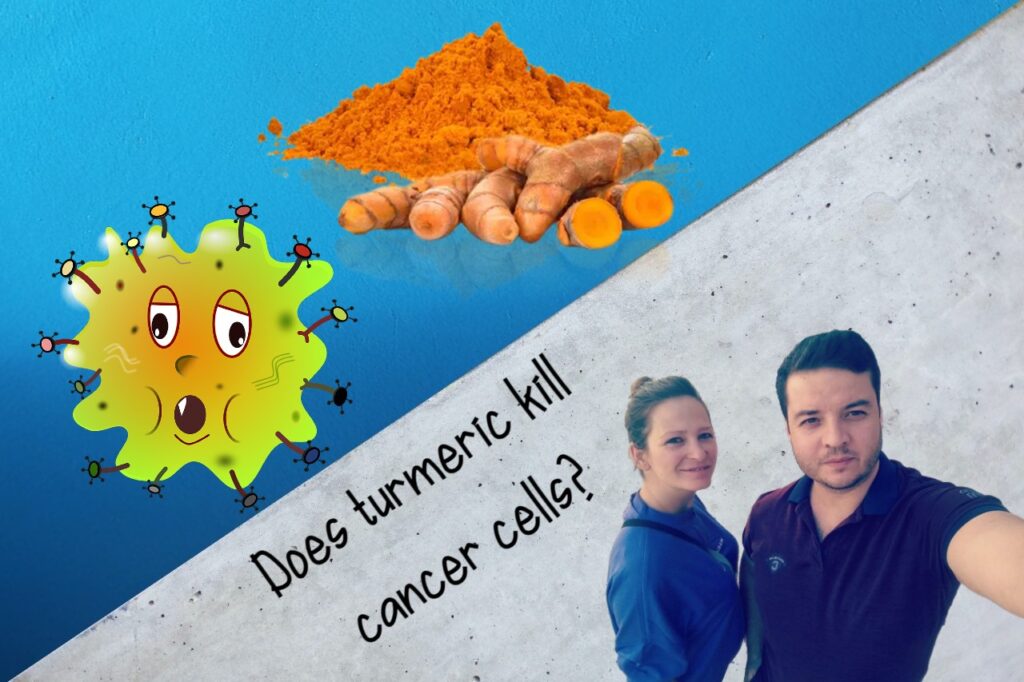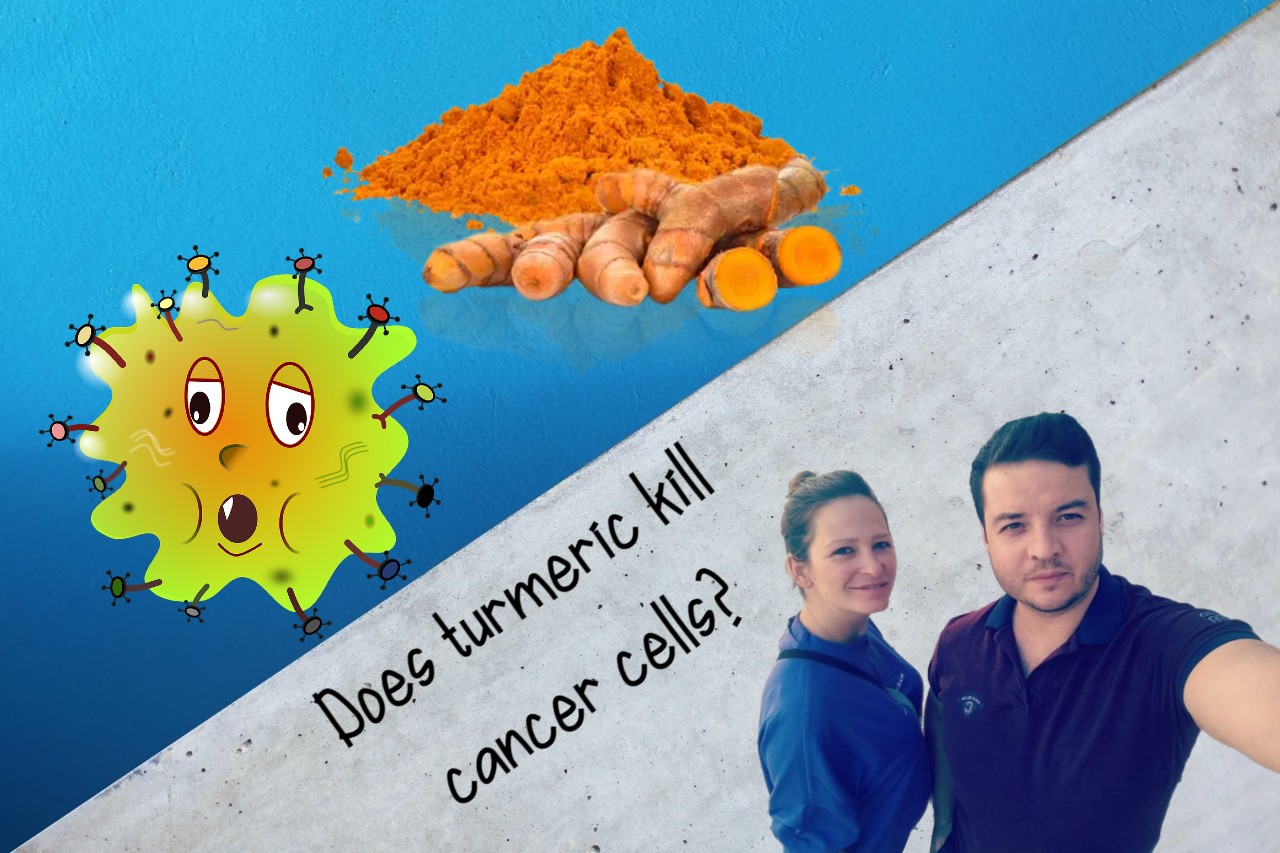
Does Turmeric Kill Bacteria? Exploring the Antibacterial Properties of Turmeric
Turmeric, a vibrant yellow spice derived from the Curcuma longa plant, has been a cornerstone of traditional medicine for centuries. Renowned for its anti-inflammatory and antioxidant properties, turmeric is increasingly being investigated for its potential antibacterial effects. The question, does turmeric kill bacteria, is not just a matter of culinary interest but also a significant area of scientific inquiry. This article delves into the existing research to explore the antibacterial capabilities of turmeric and its active compound, curcumin. We will explore the mechanisms through which turmeric might combat bacterial infections, the types of bacteria it can affect, and the current state of scientific understanding.
The Science Behind Turmeric’s Antibacterial Potential
The primary active component in turmeric is curcumin, a polyphenol with potent biological activities. Curcumin’s potential antibacterial properties have been the subject of numerous studies, both in vitro (in laboratory settings) and in vivo (in living organisms). These studies aim to understand how curcumin interacts with bacteria and whether it can effectively inhibit their growth or even kill them.
Mechanisms of Antibacterial Action
Several mechanisms have been proposed to explain how curcumin might exert its antibacterial effects:
- Disrupting Bacterial Cell Membranes: Curcumin can interact with the bacterial cell membrane, disrupting its integrity and leading to cell death. This disruption can interfere with essential bacterial functions, such as nutrient transport and waste removal.
- Inhibiting Bacterial Protein Synthesis: Curcumin may interfere with the bacterial protein synthesis machinery, preventing the bacteria from producing essential proteins needed for survival and replication.
- Interfering with Bacterial DNA Replication: Some studies suggest that curcumin can interfere with the bacterial DNA replication process, preventing the bacteria from multiplying.
- Modulating the Immune Response: Curcumin can modulate the host’s immune response, enhancing the body’s ability to fight off bacterial infections. This includes stimulating the production of antimicrobial peptides and cytokines.
These mechanisms highlight the multifaceted approach through which curcumin may combat bacterial infections. Further research is needed to fully elucidate these processes and their effectiveness in different bacterial species.
Which Bacteria Can Turmeric Target?
The antibacterial activity of turmeric and curcumin has been tested against a variety of bacterial species, including both Gram-positive and Gram-negative bacteria. Some notable examples include:
- Staphylococcus aureus: A common cause of skin infections, pneumonia, and food poisoning. Studies have shown that curcumin can inhibit the growth of S. aureus and even combat antibiotic-resistant strains like MRSA (Methicillin-resistant Staphylococcus aureus).
- Escherichia coli: A bacterium commonly found in the gut, but certain strains can cause urinary tract infections, diarrhea, and other illnesses. Curcumin has demonstrated the ability to reduce the viability of E. coli in laboratory settings.
- Salmonella species: These bacteria are responsible for foodborne illnesses. Research suggests that curcumin can inhibit the growth and virulence of Salmonella.
- Pseudomonas aeruginosa: A bacterium that can cause infections in the lungs, urinary tract, and skin, particularly in individuals with weakened immune systems. Curcumin has shown promise in combating P. aeruginosa infections.
- Helicobacter pylori: A bacterium that infects the stomach and can lead to ulcers and stomach cancer. Curcumin has been investigated for its potential to eradicate H. pylori.
While these studies provide encouraging results, it’s important to note that many of them have been conducted in vitro. The effectiveness of turmeric and curcumin against these bacteria in living organisms may vary due to factors such as bioavailability and metabolism.
The Bioavailability Challenge
One of the major challenges in utilizing curcumin for its potential health benefits, including its antibacterial properties, is its poor bioavailability. Bioavailability refers to the extent to which a substance is absorbed and becomes available at the site of action in the body. Curcumin is poorly absorbed from the gastrointestinal tract and is rapidly metabolized, limiting its concentration in the bloodstream and tissues.
Strategies to Enhance Bioavailability
Researchers have explored various strategies to enhance the bioavailability of curcumin, including:
- Combining with Piperine: Piperine, a compound found in black pepper, has been shown to significantly increase the bioavailability of curcumin by inhibiting its metabolism.
- Liposomal Formulations: Encapsulating curcumin in liposomes, small spherical vesicles made of lipids, can improve its absorption and delivery to target tissues.
- Nanoparticles: Formulating curcumin into nanoparticles can enhance its solubility and absorption.
- Curcumin Analogs: Developing curcumin analogs with improved bioavailability and stability.
These strategies aim to overcome the bioavailability challenge and maximize the therapeutic potential of curcumin. Further research is needed to determine the most effective methods for enhancing curcumin bioavailability in humans.
Clinical Evidence and Future Directions
While preclinical studies have demonstrated the antibacterial potential of turmeric and curcumin, clinical evidence in humans is still limited. Some clinical trials have investigated the effects of curcumin on various health conditions, including inflammatory bowel disease, arthritis, and cancer, but few have specifically focused on bacterial infections. More well-designed clinical trials are needed to evaluate the efficacy of turmeric and curcumin in treating bacterial infections in humans.
Future research should focus on:
- Identifying the optimal dosage and formulation of curcumin for antibacterial effects.
- Conducting clinical trials to evaluate the efficacy of curcumin in treating specific bacterial infections.
- Investigating the synergistic effects of curcumin with conventional antibiotics.
- Exploring the potential of curcumin to combat antibiotic-resistant bacteria.
The potential of turmeric to kill bacteria is an active area of research. The development of new strategies to improve curcumin bioavailability and the conduction of well-designed clinical trials are crucial steps towards harnessing the full potential of turmeric as an antibacterial agent. Understanding if turmeric kills bacteria definitively through rigorous scientific investigation could lead to novel approaches in combating bacterial infections, especially in the face of increasing antibiotic resistance. [See also: Turmeric Benefits for Skin] [See also: Turmeric and Inflammation] [See also: Curcumin Supplements]
Practical Considerations: Incorporating Turmeric into Your Diet
While research is ongoing, incorporating turmeric into your diet is generally considered safe and may offer various health benefits. Here are some practical ways to include turmeric in your daily routine:
- Cooking: Add turmeric powder to curries, soups, stews, and rice dishes.
- Turmeric Latte (Golden Milk): Mix turmeric powder with milk (dairy or non-dairy), ginger, black pepper, and honey.
- Smoothies: Add a pinch of turmeric powder to your smoothies.
- Supplements: Consider taking a curcumin supplement, preferably one that is formulated to enhance bioavailability (e.g., with piperine).
It’s important to note that turmeric should not be used as a replacement for conventional medical treatments for bacterial infections. If you suspect you have a bacterial infection, consult a healthcare professional for proper diagnosis and treatment. The question of does turmeric kill bacteria is still being answered, and professional medical advice should always be followed.
Conclusion: Does Turmeric Kill Bacteria? A Promising Area of Research
The question of does turmeric kill bacteria is complex. While laboratory studies suggest that turmeric and its active compound, curcumin, possess antibacterial properties, more research is needed to confirm these effects in humans. Curcumin’s potential to disrupt bacterial cell membranes, inhibit protein synthesis, and modulate the immune response makes it a promising candidate for further investigation as an antibacterial agent. Addressing the bioavailability challenge and conducting well-designed clinical trials are crucial steps towards unlocking the full potential of turmeric in combating bacterial infections. For now, incorporating turmeric into your diet may offer general health benefits, but it should not be considered a substitute for conventional medical treatments. The research into does turmeric kill bacteria is ongoing, and future studies will hopefully provide more definitive answers. Ultimately, understanding does turmeric kill bacteria could revolutionize how we approach and treat bacterial infections.

